Churches reported diverse ways in which they support their attenders to link their faith with issues related to their paid employment, including sermons, conversations, pastoral care and bible studies.
While a majority of attenders felt supported, there is room for stronger or more effective support, particularly in the Mainstream Protestant and Catholic churches.
Results from the 2016 NCLS show that when attenders feel supported by their church: they tend to have a stronger sense that work is meaningful (Vocation); their faith tends to be deepened in the workplace (Devotion) and their faith tends to impact more on how they conduct their work (Influence).
Nine out of ten churches said they support attenders to link faith and work
Nine in 10 churches (91%) reported that they support attenders to link faith with issues that concern them in their paid employment. The most common way was through sermons or homilies. A majority also offered support through other aspects of worship services, Bible studies or small groups, pastoral care or information relationships and conversations. Very few churches ran targeted programs such as seminars for professionals.
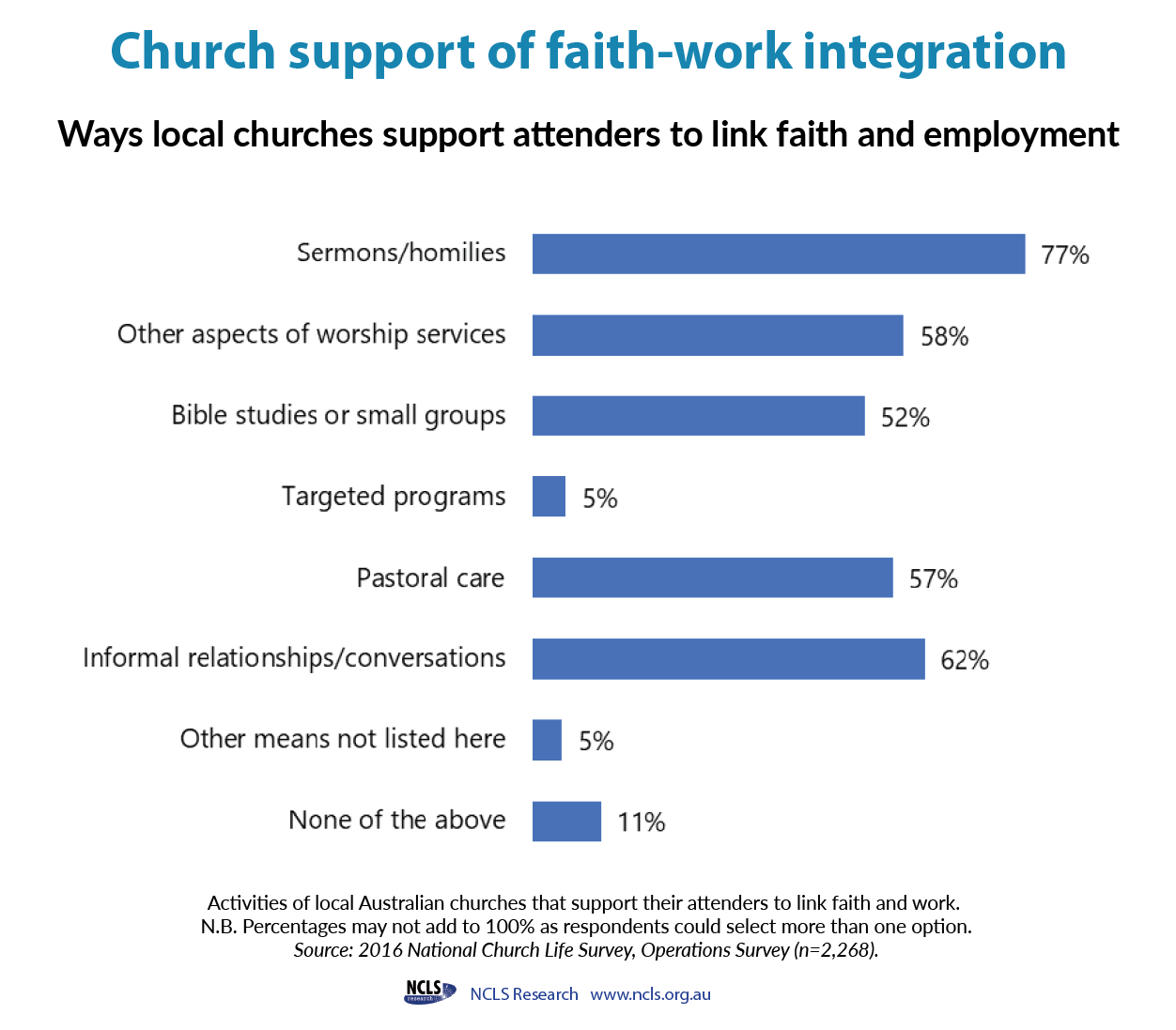
Forms of support varied across denominations
The presence of support and its various forms differed across the denominations (see table below). Mainstream Protestant churches were less likely to offer support than other churches. Addressing issues via the pulpit was the most common means across all denominational groups, and preachers at more than eight in 10 Protestant churches did so. Pastoral care, Bible studies or small groups and informal relationships and conversations featured heavily in Pentecostal and Other Protestant churches, whereas Catholic parishes were the most likely to address issues of faith and work through aspects of worship services such as prayers of the faithful. Targeted programs were most likely in Pentecostal churches, but were still uncommon (13% of Pentecostal churches).
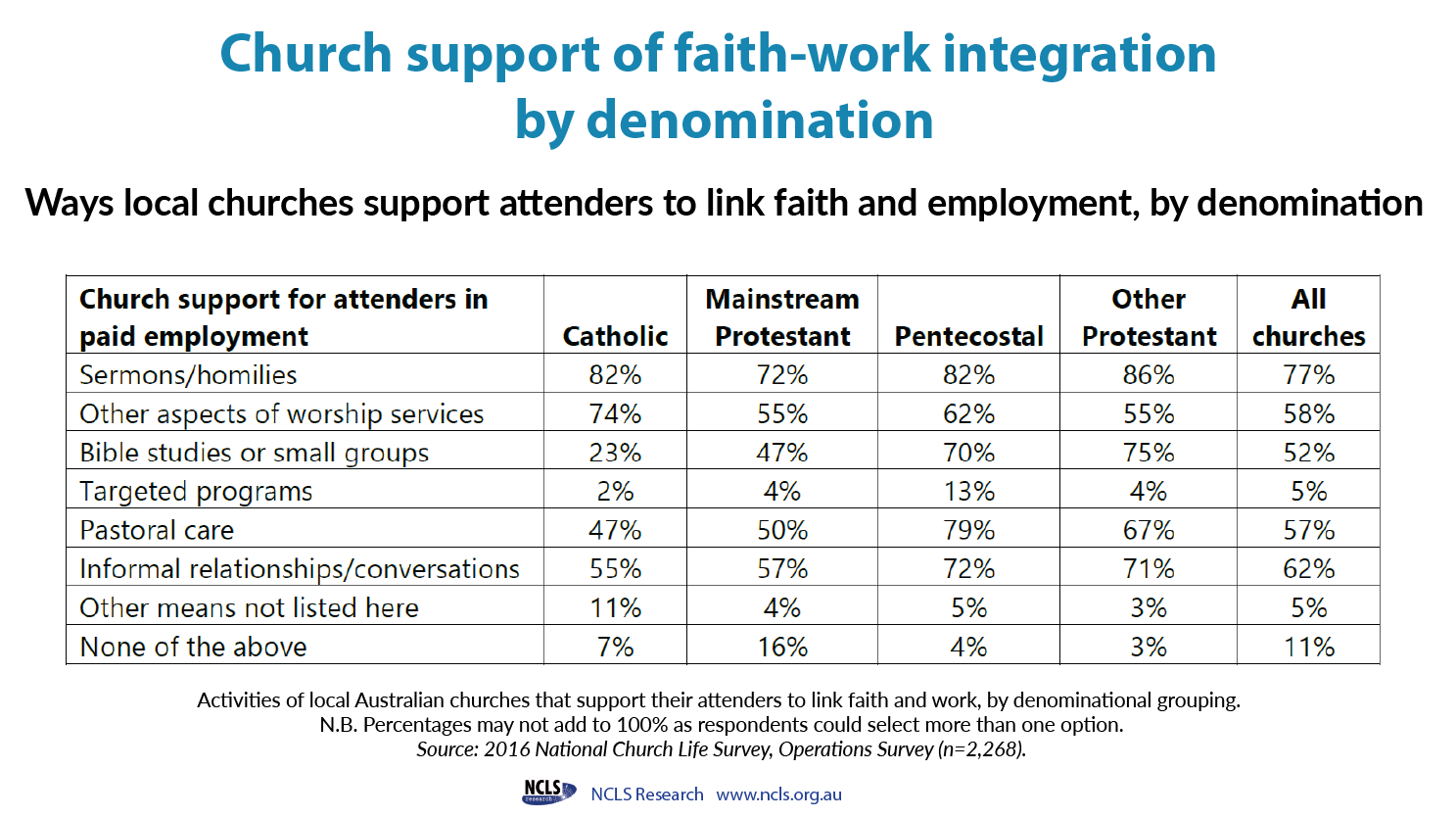
Six in 10 senior local church leaders preached occasionally on issues related to paid employment
Leaders with preaching responsibilities were asked to indicate how often they would touch on the topic of issues related to paid employment in their preaching over the course of a year. Six in 10 senior local church leaders indicated that they did so at least occasionally, with 6% doing so often and 19% sometimes. Some 11% never addressed this topic. The results did not differ by denomination.
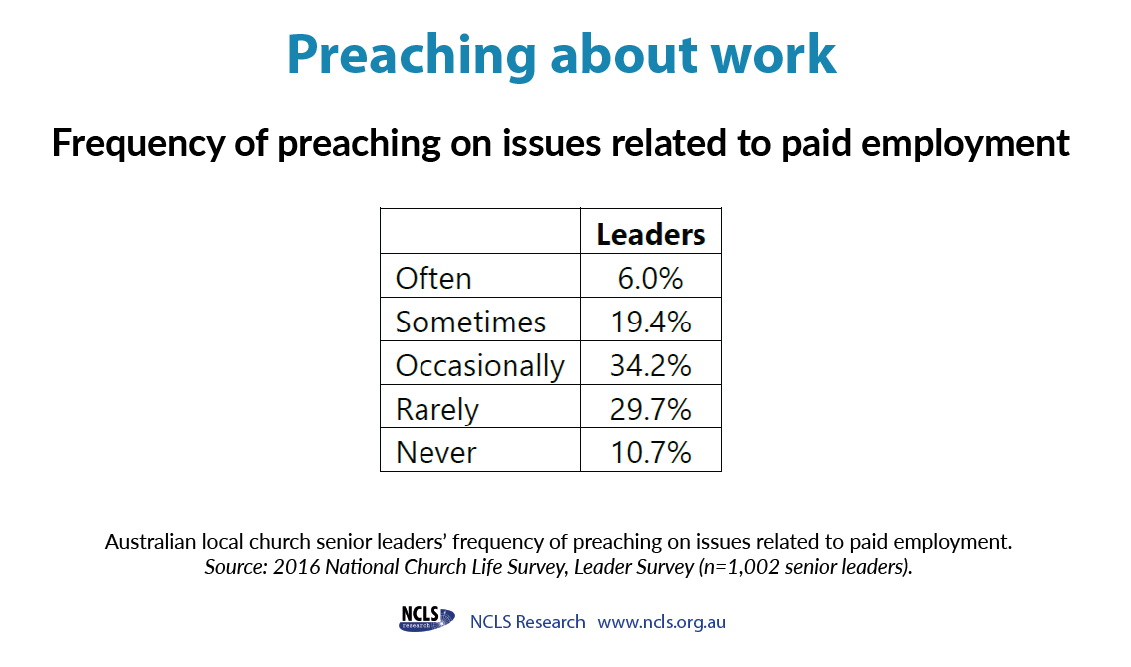
Feeling supported by church positively related to attenders’ faith-work integration
When attenders feel that they are supported by their churches:
• they tend to have a stronger sense that work is meaningful (Vocation)
• their faith tends to be deepened in the workplace (Devotion)
• their faith tends to impact more on how they conduct their work (Influence).
In contrast, when a person does not feel supported by their church, there is more likely to be a disconnect between their faith and the workplace (Separation).
Majority of attenders feel supported by their church in being Christian in their workplace
Attenders who were in paid employment at the time of the 2016 NCLS, were asked the extent to which they agreed or disagreed with the following statement: ‘I feel supported by my local church in being a Christian in my workplace’. A majority agreed or strongly agreed (59%), while 28% were neutral or unsure and 14% disagreed or strongly disagreed (see figure below).
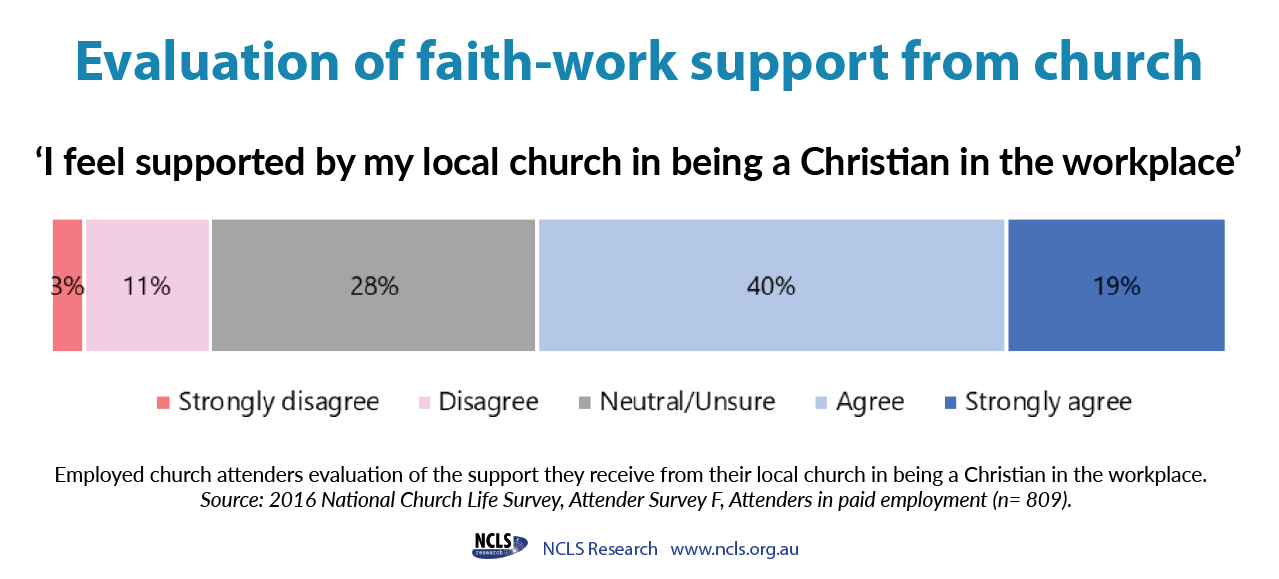
The results differed by denominational group (see table below). Pentecostal and Other Protestant attenders were the most likely to feel supported by their local church, followed by Mainstream Protestants, then Catholics. Those who identified as charismatic or Pentecostal were more likely than those who didn’t to feel supported.
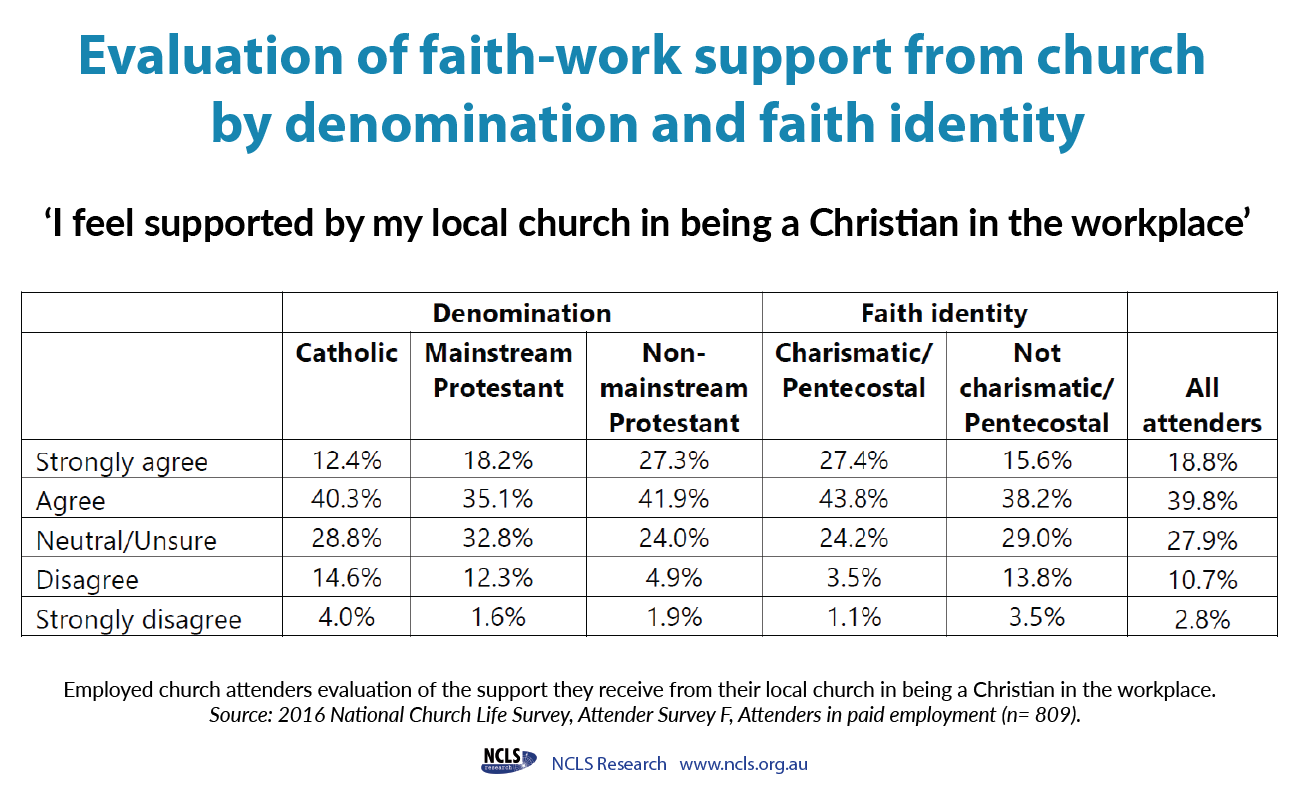
Given the crucial role that churches can play in helping churchgoers to integrate their Christian faith with matters relating to their work, leaders are encouraged to consider ways they can better support their church attenders. Several case studies are available, in which local church leaders share their stories on supporting faith-work integration at their church. These include Thank God it's Monday; Bridging the work faith divide; and Made in the image of God the worker. These interview-based case studies are from three pastors who have a particular ministry focus on bringing faith and work closer together.
Read case studies of local churches
Mental health support from churches
one year ago
Mental health support rated as good yet many churches unaware
Employment changes things
3 years ago
by Kathy Jacka, Miriam Pepper
'Time strapped' people with less time for volunteering and participating at church.
Attenders in employment have distinctive characteristics
3 years ago
by Miriam Pepper, Ruth Powell, Kathy Jacka
Church attenders in paid employment have distinctive characteristics
Bridging the work faith divide
3 years ago
One church' story on how they help their churchgoers to integrate their faith with their work life.

Thank God it's Monday
Paul Bartlett, Lighthouse Church Wollongong

Bridging the work faith divide
Jo Wilton, C3 Church Miranda






